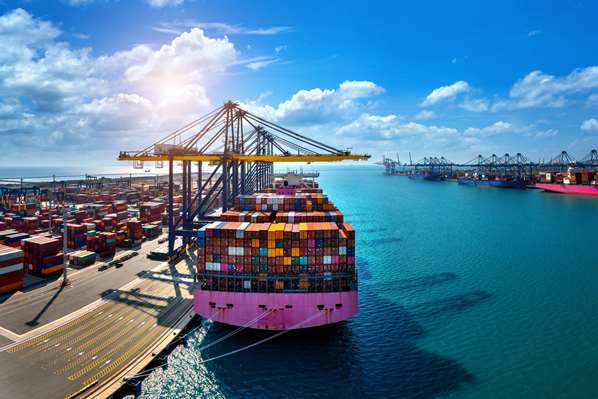
Each day, thousands of containers are loaded and unloaded at our seaports in the UK. They are ferried to and fro using liner ships, which provide scheduled ferrying service on fixed routes – more so like a train or bus. This is essentially container shipping. If you’re looking for a reliable shipping container service, check out premiershippingcontainers.com.au. Transporting goods in containers using liner ships has come into the light as an efficient method of moving large quantities of goods, be it private or commercial, across long distances globally.
These specialised container shipping vessels are also referred to as cargo ships or boxships. A regular container ship can accommodate between 10,000 Twenty-foot Equivalent Units (TEUs) and 23,000 TEUs.
Having container shipments from point A to Z shouldn’t be an uphill undertaking. Container shipping can be employed to ferry all manner of things internationally, from large items like cars to smaller things like electronics, furniture or foodstuffs. You may be under the impression that this transportation method is only ideal for shipping things in bulk, but container shipping services can also be used by people relocating overseas and who want to ship their furniture, household goods and other personal effects to another country.
Continue reading to learn more about container shipping and discover how you can take advantage of enlisting expert container shipping services to move your assets to any location you want in the world.
Types of Container Shipments
Depending on the quantity of goods you are shipping, you may not be required to pay the full amount of hiring a whole container. Container shipping companies such as Ogma have come up with a way for individuals to transport smaller quantities of freight and entail multiple clients sharing the same container space. This is what is referred to as part-load shipment or Less Than Container Load (LCL) shipment. Less-than-container load shipments accommodate small quantity goods or contents of a one-bedroom apartment. You will only pay for the space you occupy.
To move larger volumes of cargo like whole household moves including cars and other physical amenities will need a whole container. This is referred to as sole-use shipment or ‘Full Container Load’ (FCL). It’s more or less the same as the difference between a bus and a private taxi.
Why choose Full Container Load?
-Better value. When you take into account the cost per cubic meter, you will get the best value by using FCL. When you go for this type of shipment, you can expect to be charged a flat rate instead of having to pay for the exact volume and space your cargo occupies.
-Faster. Look at it this way; when you share a container with another person’s goods, there will be some waiting involved as the cargo will need to be loaded and unloaded at every port destination and put in specific trucks. What’s more, the cargo will need to be sorted will clear labels indicating whose cargo is which, so any mistakes can mean your goods may be lost or misplaced.
In the case of an FCL shipment, the container won’t be opened once loaded until it reaches your intended destination. Plus everything in the container is yours and won’t need any sorting out. The additional time needed by LCL can contrast, ranging from days to weeks depending on the destination and shipping company.
-Safer. Shipping your cargo using LCL shipments comes with its fair share of risk, and this is mostly attributed to all the additional handling. The unloading and loading that occurs at every port imply that LCL shipments are shifted more frequently compared to FCL shipments. And as expected, this places your possessions at a far increased risk of getting damaged. If you wish to move fragile goods, then FCL is the best shipment type for you.
-Car shipping. Most international cars enter the market through the ports as most are acquired from nations like China. You can’t share a container well moving a car. Your car can safely be secured in the container to endure the duration of the journey to the port. With FCL, there’s no risk of damage or tampering by external elements.
Why choose Less Than Container Load?
Cheapest method for shipping small volumes. If you don’t have that many things to move, it won’t make any sense to hire an entire container. Things will begin rattling once the ship sets off. LCL is far budget-friendly and is ideal for smaller relocations and it’s common to see somebody with a couple of boxes. Students going abroad to study for a year or longer normally go for LCL shipment.
How are container shipping costs calculated?
Container shipping companies generally consider the following factors when computing the overall cost. They include:
-The weight or volume of the goods
-The sort of transport
-The distance
-The destination port
-The time of year
Do I need container shipping insurance?
This short answer is yes. Not all shipping journeys happen without a hitch and taking out an insurance policy to cover your cargo is advised. Moreover, it won’t cost you a lot. Shipping insurance works by taking into account the value of your goods instead of their volume of weight. This means that insuring belongings worth £40,000 being ferried from the UK to Say Australia would cost you about £700.
Even though overseas shipping is safe, anything can happen along the way and your cargo may be damaged or lost. Shipping insurance works to protect you and the shipping company strongly recommends taking this action.
These days, there’s even a container tracking tool that allows you to monitor your shipping container’s movements day and night.




